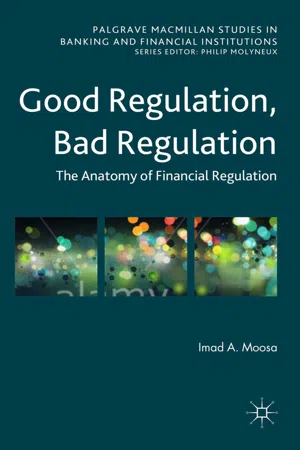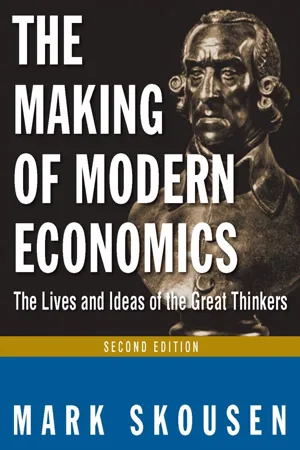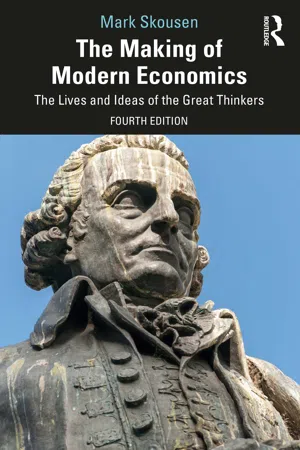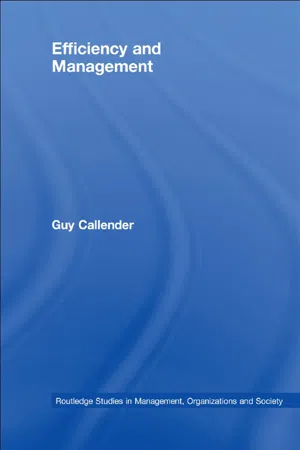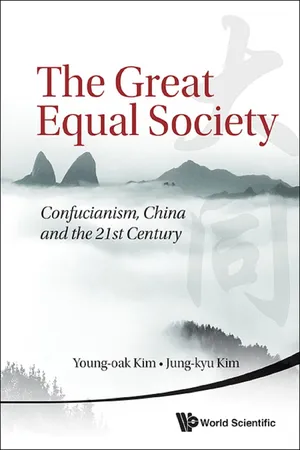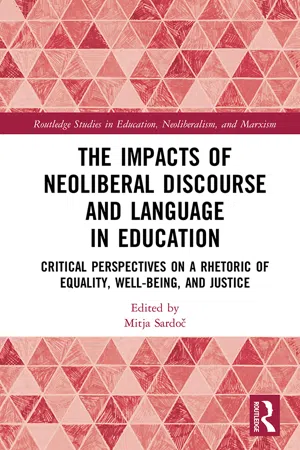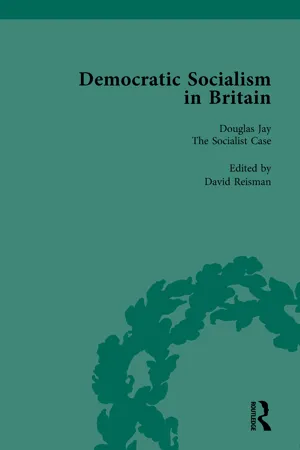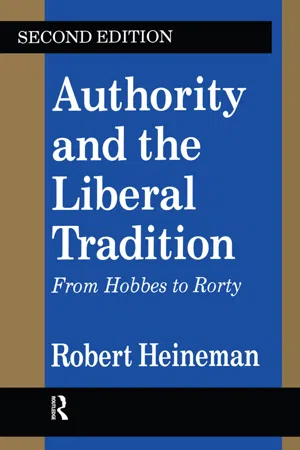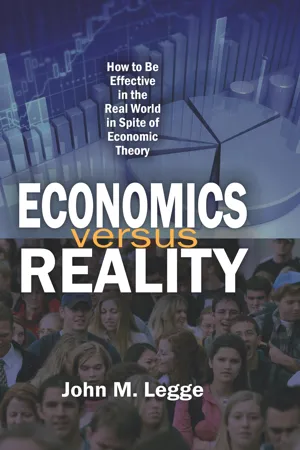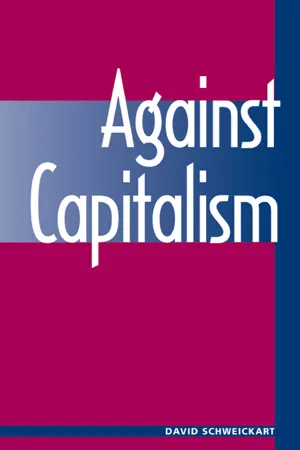Economics
Laissez Faire Economics
Laissez-faire economics is an economic theory that advocates for minimal government intervention in the economy. It promotes the idea that markets should be allowed to operate freely without government regulation or interference. The term "laissez-faire" is French for "let it be" and reflects the belief that the economy functions best when left to its own devices.
Written by Perlego with AI-assistance
Related key terms
Related key terms
1 of 4
Related key terms
1 of 3
10 Key excerpts on "Laissez Faire Economics"
- eBook - ePub
Good Regulation, Bad Regulation
The Anatomy of Financial Regulation
- Imad A. Moosa(Author)
- 2016(Publication Date)
- Palgrave Macmillan(Publisher)
The New York Times . For example, Lohr (2008) declares that “the United States has a culture that celebrates laissez-faire capitalism as the economic ideal”. Calmes (2008) suggests that “for 30 years, the nation’s political system has been tilted in favor of business deregulation and against new rules”. In another article, Thomas and Werdigier (2007) suggest that “since 1997, Mr. Brown [a former British Prime Minister] has been a powerful voice behind the Labor Party’s embrace of an American-style economic philosophy that was light on regulation”. The laissez-faire approach encouraged the country’s banks to expand internationally and chase returns in areas far afield of their core mission of attracting deposits.Reisman (2008) argues that “the mentality displayed in these statements is so completely and utterly at odds with the actual meaning of laissez faire that it would be capable of describing the economic policy of the old Soviet Union as one of laissez faire in its last decades”. He defines laissez-faire as follows:Laissez-faire capitalism is a politico-economic system based on private ownership of the means of production and in which the powers of the state are limited to the protection of the individual’s rights against the initiation of physical force. This protection applies to the initiation of physical force by other private individuals, by foreign governments, and, most importantly, by the individual’s own government. This last is accomplished by such means as a written constitution, a system of division of powers and checks and balances, an explicit bill of rights, and eternal vigilance on the part of a citizenry with the right to keep and bear arms.Given this definition of laissez-faire, Reisman describes as “absurdity” statements claiming that the present political-economic environment of the US in some sense represents laissez-faire capitalism. He considers the following observations:1. Government spending in the US is more than 40 per cent of national income.2. There are presently 15 federal cabinet departments. Under laissez-faire capitalism, 11 of the 15 cabinet departments would cease to exist and only the departments of justice, defence, state and treasury would remain. - eBook - ePub
The Making of Modern Economics
The Lives and Ideas of Great Thinkers
- Mark Skousen(Author)
- 2015(Publication Date)
- Routledge(Publisher)
Pour gouverner mieux, il faudrait gouverner moins (in order to govern better, we ought to govern less).“Laissez faire” has come to represent the hands-off policies advocated by Adam Smith, although he never used the phrase. In the twentieth century, John Maynard Keynes gave laissez faire a bad name; it represented the “do-nothing” policies prevalent during the Depression years. “For good or evil, in present day conditions laissez-faire can no longer be relied upon to furnish economic projects with the capital they need,” he wrote (Skidelsky 1992: 185). According to Keynes, government was needed to rescue laissez-faire capitalism.In fact, laissez faire was never meant to be a heartless “do-nothing” government policy. Adam Smith and the classical laissez-faire economists actually aimed at dismantling the old system of regulations and special privilege, and thus improving the general welfare.The French economists were very much involved in Smith’s magnum opus, starting when he spent time in France preparing his book and discussing ideas with Quesnay, Turgot, and Voltaire. Once The Wealth of Nations was published, the French were highly successful in publicizing Smith’s model of free enterprise and liberalized trade throughout the Western world. They translated Smith’s book into French, published the first encyclopedia of economics and the first history of economic thought, and wrote the first major textbook in economics, Say’s Treatise on Political Economy , which was the principal textbook in the United States and Europe during the first half of the nineteenth century. Many of the Smithian principles were adopted by Alexis de Tocqueville in his profound study of Democracy in America (see box, pages 59 –61 - eBook - ePub
The Making of Modern Economics
The Lives and Ideas of the Great Thinkers
- Mark Skousen(Author)
- 2022(Publication Date)
- Routledge(Publisher)
Iabandon laissez faire, –not enthusiastically . . . but because, whether we like it or not, the conditions of its success have disappeared.–John Maynard Keynes (Skidelsky 1992 : 186)In the late seventeenth century, the famous French mercantilist minister, Jean-Baptiste Colbert, once asked a group of businessmen what he could do for them. One of the men, Legendre, is supposed to have replied, “Laissez nous faire”—leave us alone. Several French authors in the earlier part of the eighteenth century, including the Marquis d’Argenson, used the slogan “Laissez faire.” The great economist Turgot attributed the rule Laissez faire, laissez passer—leave things alone, let goods pass through—to Gournay. Other French sayings with similar meaning became popular: Le monde va de lui même (the world goes by itself), and Pour gouverner mieux, il faudrait gouverner moins (in order to govern better, we ought to govern less).“Laissez faire” has come to represent the hands-off policies advocated by Adam Smith, although he never used the phrase. In the twentieth century, John Maynard Keynes gave laissez faire a bad name; it represented the “do-nothing” policies prevalent during the Depression years. “For good or evil, in present day conditions laissez-faire can no longer be relied upon to furnish economic projects with the capital they need,” he wrote (Skidelsky 1992 : 185). According to Keynes, government was needed to rescue laissez-faire capitalism.In fact, laissez faire was never meant to be a heartless “do-nothing” government policy. Adam Smith and the classical laissez-faire economists actually aimed at dismantling the old system of regulations and special privilege, and thus improving the general welfare.The French economists were very much involved in Smith’s magnum opus, starting when he spent time in France preparing his book and discussing ideas with Quesnay, Turgot, and Voltaire. Once The Wealth of Nations was published, the French were highly successful in publicizing Smith’s model of free enterprise and liberalized trade throughout the Western world. They translated Smith’s book into French, published the first encyclopedia of economics and the first history of economic thought, and wrote the first major textbook in economics, Say’s Treatise on Political Economy, which was the principal textbook in the United States and Europe during the first half of the nineteenth century. Many of the Smithian principles were adopted by Alexis de Tocqueville in his profound study of Democracy in America - eBook - ePub
- Guy Callender(Author)
- 2008(Publication Date)
- Routledge(Publisher)
At the time that democracy became more egalitarian and diverse in its objectives, laissez-faire became the populist economic doctrine that dominated UK economic policy. Arguably, one consequence was the comparative decline in national certainty of purpose and macro-efficiency. In place of national goals and international dominance, the individual rights of owners to pursue their own paths to their ‘profits on investment’ 97 became a dominating economic force. This chapter has evaluated a diversity of qualitative economic issues that have emerged in Anglo-American economies over the past two centuries. The aim of this historical review has been to underline the comparative speed with which some Anglo-American economies have shifted, at times rapidly, from laissez-faire to centralized models of economic policy on a pragmatic basis. The chapter also raises the question: is the basis of economic theory, and therefore the foundations of its dominant position in the social sciences, objectively scientific or socio-political? The answer to this question may never be entirely clear. Yet the varying influences that have been identified in the historical analysis of the changing economic epochs of the past 120 years, and the overtly loose linkage made by Friedman between the size of government and the size of the tithe (which is a culturally-embedded belief rather than a universal measure), pose fundamental questions about the supposed scientific basis of economics - eBook - ePub
Great Equal Society, The: Confucianism, China And The 21st Century
Confucianism, China and the 21st Century
- Young-oak Kim, Jung-kyu Kim(Authors)
- 2013(Publication Date)
- WSPC(Publisher)
On the EconomyMencius went to see King Hui of Liang, who said, “Sir, since you have not counted it far to come here, a distance of a thousand leagues, may I presume that you can offer counsels to profit my kingdom?” Mencius replied, “Why must your Majesty speak of profit? What I can provide are counsels to benevolence and righteousness, and they are my only topics.”Mencius, 1a-1Laissez-faire versus Social RealizationThe expression “laissez-faire” comes from a French phrase meaning “Let [it] be.” Legend has it that Jean-Baptiste Colbert, the French finance minister best known for pioneering mercantilism, met a group of business owners in 1680. When Colbert asked how the government could help their businesses, the leader of the group quipped, “Let us be.” We do not know whether that moment marked the birth of laissez-faire, but the episode captures the essence of its non-interventionist philosophy. In modern times, the term mainly refers to freedom from state interference in the economic realm. It also denotes the doctrine of having a smaller government in general, as captured in Henry David Thoreau’s famous dictum: “That government is best which governs least.”So it is perhaps surprising to learn that the laissez-faire philosophy of governing (although not the term itself) existed 2,500 years ago. The philosopher who expounded the idea was Lao Tzu, the ancient sage of Taoism. The entire philosophy of Lao Tzu can be summed up in one sentence: Let it be. To see how this principle is applied to government, take a look at the following verse from Tao Te Ching, which many view as the most beautiful and profound work ever written in the Chinese language1 :The best government is when people only know that rulers exist. The next best is when people love and praise their rulers. The next is when people fear their rulers. The next is when people feel humiliated by their rulers.2 - eBook - ePub
The Impacts of Neoliberal Discourse and Language in Education
Critical Perspectives on a Rhetoric of Equality, Well-Being, and Justice
- Mitja Sardoč(Author)
- 2021(Publication Date)
- Routledge(Publisher)
4 Neoliberalism and Laissez-Faire 1The Retreat from Naturalism
Mark OlssenThe Problem of Laissez-Faire in Neoliberal Thought
Foucault’s (2008) analysis of the ordo liberals in Germany focused on the discrepancy between their advocacy of laissez-faire and the polarity between their views on the role of government. On the one hand, the German ordo liberals distrusted large concentrations of power and opposed action to ‘interfere’ in markets, through wages and price fixing, or administrative or bureaucratic involvement, but on the other hand, they favoured and supported the actions of government to reinforce and strengthen the institutional infrastructures, to arrange and enable the ‘conditions’ necessary for the market to operate. This was supported, for instance, by ordo liberals such as Walter Eücken, who took the view that the economy required an ‘economic constitution’, which must be created and protected by the state. The possible conflict with free market principles is evident in the following statement:A solution of this task of which much depends (not only men’s economic existence), requires the elaboration of a practicable economic constitution which satisfies certain basic principles. The problem will not solve itself simply by our letting economic systems grow up spontaneously. The history of the last century has shown this plainly enough. The economic system has to be consciously shaped.(Eücken, 1992 : p. 314)Eücken sought to chart the basic principles of ‘economic politics’ [Wirtschaftspolitik ] in order to establish the ‘conditions’ for a competitive market order to arise and continue. Establishing competition as the cornerstone of the economy became the key principle of a neoliberal order. It was concerned not with ‘interfering’ with the day-to-day processes of the economy, but seeking to establish and protect the ‘conditions’ that were favourable to an effective and efficient economic system. As Eücken put it, ‘[t]he answer is that the state should influence the forms - eBook - ePub
Democratic Socialism in Britain, Vol. 8
Classic Texts in Economic and Political Thought, 1825-1952
- David Reisman(Author)
- 2021(Publication Date)
- Routledge(Publisher)
The real world of laissez-faire is a world of private monopoly and quasi-monopoly relieved by a few oases of quasi-competition. In the first place there is a very forceful ‘tendency’ in a great many most important trades for the producers to combine. For ‘freedom’, as Professor F. H. Knight points out, is a very different thing from free competition. Freedom means freedom to combine; and ‘under freedom all that would stand in the way of a widespread drift towards monopoly is the fortunate limitation of human nature which prevents the necessary organization from being feasible or makes its costs larger than the monopoly gains which it might secure’. 1 Normally, in fact, wherever there are monopoly gains to be secured, nothing but anti-trust laws will preserve competition; and the would-be monopolists will protest loudly against this ‘Government interference’ by which free competition can alone be preserved. Laissez-faire, or the absence of Government interference, it should be observed, is very nearly the antithesis of perfect competition. The universal drift towards monopoly in modern capitalist countries is due to a fundamental and not any accidental or passing reason; and is consequently far more powerful than those misled by laissez-faire doctrines are able to realize. It used to be thought by old-time economic theorists that the tendency to monopoly was only present in industries where average costs of production tended to fall with increasing output; and it was assumed that these were a minority. But the vital factor at work to-day, in a world of telephones, typewriters, teleprinters, comptometers, wireless, market research, statistics, aviation, radar, time and motion study, and all the other devices of modern life, is the efficiency and economy to be gained not merely by large-scale production, but by large-scale organization - eBook - ePub
Authority and the Liberal Tradition
From Hobbes to Rorty
- Robert Heineman(Author)
- 2020(Publication Date)
- Routledge(Publisher)
Laissez Faire Becomes Public PolicyThe proponents of limited government and economic individualism had widespread public support during much of the latter nineteenth and early twentieth centuries in the United States; and their views soon became part of the supreme law of the land as enunciated by the nation’s highest court. The laissez faire position gained additional credence from the tremendous economic and technological advances that occurred during this period. As a result, many Americans became convinced that governmental power was not necessary for domestic prosperity; and, thus, they saw no need to formulate an articulate theoretical basis for government as a democratically responsive force for social direction.William Graham Sumner and Minimal Government
The foremost academic spokesman for laissez faire ideas in latter nineteenth-century America was, without a doubt, William Graham Sumner. An instructor at Yale University from 1868 until the early twentieth century, Sumner spent the better part of the period from 1870 through the early 1890s popularizing the doctrine of limited government and individual freedom. He was more than a devotee of the ideas of Spencer, however. His thought represents a fairly comprehensive amalgam of the currents comprising the intellectual revolution of the time. Adherence to the ideas of individualism and laissez faire originated from his early acquaintance with the thought of the classical economists.1 Much of his methodology seems to have been derived from his educational years spent abroad in Germany. His acceptance of Spencer’s ideas and their Darwinian parallels originally stemmed not from the Social Statics but from the later The Study of Sociology.2 Richard Hofstadter’s statement that Sumner “brought together three great traditions of western capitalist culture: the Protestant ethic, the doctrines of classical economics, and Darwinian natural selection…”3 - eBook - ePub
Economics versus Reality
How to be Effective in the Real World in Spite of Economic Theory
- John Legge(Author)
- 2017(Publication Date)
- Routledge(Publisher)
12Intervention and Laissez-Faire
Our progress as a nation can be no swifter than our progress in education. The human mind is our fundamental resource.— John F. KennedyThe committed neoliberal economist assumes that the economy works best when individuals are allowed to pursue their own self-interest, and any intervention that restricts individual freedom causes more economic damage than it can possibly prevent. When Mrs. Thatcher asserted that there was no such thing as society,1 she treated this assumption not simply as a postulated way to achieve certain desirable outcomes, but as an incontestable fact.I explore some implications and responses below.Justice
The term “justice” implies that there is such a thing as injustice—behavior that in some way abuses some general concept of “right” behavior. If one person’s pursuit of her self-interest leads to another person’s harm, even when no law is clearly broken, many people will hold that such an outcome is unjust and it is proper for governments, acting in society’s interest, to take balancing actions.Neoliberals generally oppose such redistributive actions, arguing that primitive concepts such as fair dealing and succoring the weak are historical anomalies. If there is no such thing as society, then there can be no actions that draw social disapproval and hence no valid arguments in favor of any form of compulsory redistribution. Some neoliberals go further and argue that unequal rewards for equal effort are a necessary price to pay for social progress.Neoliberal economists recognize that human weakness might lead to individuals taking the pursuit of self-interest too literally, stealing rather than trading, or psychopaths might interpret their self-interest in ways that conflict with the self-interest of others. Institutions, such as a police force and a criminal justice system will be needed to limit the activities of thieves and psychopaths; but as far as possible, these institutions should be allowed to emerge spontaneously and should operate on market principles. - eBook - ePub
- David Schweickart(Author)
- 2018(Publication Date)
- Routledge(Publisher)
378). 81 Brenner (1973). 82 Allan and Steffensmeier (1989). 83 Eastern European intellectuals take note: The unemployment accompanying a move toward Laissez Faire need not be temporary. 84 This solidarity could be, and probably should be, backed by a law prohibiting the dismissal of a worker simply for reasons of financial exigency. Considerations of equity and efficiency converge here. Such worker rights not only increase the likelihood of full employment (which is required for Keynesian efficiency) but also, as noted earlier, are likely to enhance X-efficiency. 85 This is not an axiomatic feature of capitalism, but one that is likely to prevail under Laissez Faire. The employer has no incentive to apply “share the burden.” Individual workers have little incentive, because in the absence of worker democracy they have little motivation to concern themselves with their more expendable “comrades.” 86 Thomas and Logan (1982, p. 49). It should be noted that the economy of the Basque region continued to degenerate during the worldwide recession of the early 1980s, to the point that new job creation in cooperatives virtually ceased. The cooperative complex, however, unlike the rest of the region, was able to avoid contraction. (Unemployment in Spain hit 18.4 percent in 1983, the highest rate in Europe.) See Bradley and Gelb (1987). 87 As an alternative to public employment (or perhaps as a supplement), communities might want to institute “rotating layoffs.” During periods of significant unemployment, communities could agree to provide unemployment compensation to those laid off, to cushion the financial shock, while firms could agree to recall those laid off after a specified period, laying off others in their stead if necessary
Index pages curate the most relevant extracts from our library of academic textbooks. They’ve been created using an in-house natural language model (NLM), each adding context and meaning to key research topics.
Explore more topic indexes
Explore more topic indexes
1 of 6
Explore more topic indexes
1 of 4
